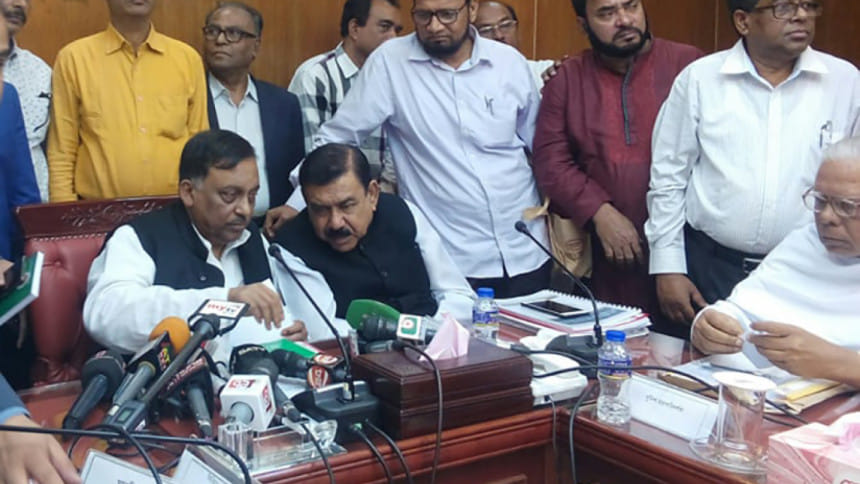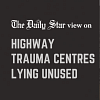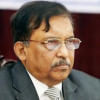Checking Road Accidents: Long wait for effective steps

Formed in February with former shipping minister Shajahan Khan at its helm, a committee two months later made a 111-point recommendation on how to reduce road crashes and bring discipline in the transport sector.
Another four months went by to form a taskforce that would implement the recommendations. An additional one-and-a-half month was taken to issue a gazette about formation of the taskforce led by Home Minister Asaduzzaman Khan Kamal.
In the meantime, the country witnessed over 15 percent rise in the number of crashes and casualties, compared to last year.
Yesterday, the 33-member taskforce held its first meeting, in which it included three additional members and assigned four secretaries to recommend and plan how the recommendations can be implemented.
The top-tier bureaucrats of the country will have to submit their action plan in two months, meaning a year will have gone doing paperwork to curb road crashes.
“We formed four sub-committees led by four secretaries to find our weaknesses and they will give us a plan on how we will work,” Home Minister Asaduzzaman told reporters after yesterday’s meeting at his secretariat office.
When the sub-committees submit their recommendations after two months, the taskforce will sit again.
The sub-committee led by the secretary of Road Transport and Highways Division will look into the weaknesses of Bangladesh Road Transport Authority (BRTA) and other related issues while the sub-committee led by information secretary will work on how awareness can be created about traffic law, the minister said.
The sub-committee of public security division secretary will focus mainly on traffic management while the one under local government division secretary will work on improving local roads, he added.
About the months spent for paperwork, the minister said, “We are yet to start our work because the gazette about the formation of the taskforce was issued on October 16. The taskforce wasted no time.”
At least 3,060 people were killed and 3,292 others injured in 3,009 road crashes between January and September this year, according to a police report which has been termed conservative by many.
Police records also mentioned that 2,635 people were killed and 1,920 others injured in 2,609 crashes last year.
The numbers mentioned in the police reports are significantly lower than the ones published in other reports by different road-safety campaigners.
ACTUAL WORK DELAYED
Amid growing concern over road crashes, the National Road Safety Council (NRSC) on February 19 this year formed a committee led by Shajahan Khan to recommend ways to curb crashes and combat chaotic and indisciplined driving.
The committee drew flak as Shajahan and seven other members of the committee were involved in transport organisations that are often blamed for the very indiscipline that the committee was supposed to put an end to.
The committee submitted its report to the prime minister on April 28 with 111 recommendations.
In its report, the committee specified which authorities would implement which recommendation. It also recommended setting up one or more taskforces to oversee the implementation.
Some of the recommendations include setting limit on the lifespan of all commercial vehicle, creating awareness about traffic rules, taking projects to produce skilled drivers and instructors, establishing driving schools, moving inter-district bus terminals out of the capital, building trauma centres and fire stations at regular intervals on highways, and strengthening the BRTA.
The deadlines for implementing the 111 recommendations were set between this December and 2024.
The taskforce was formed on September 5.
“I am frustrated by the slow pace of the taskforce. I have found that the government doesn’t give it much importance. This is painful for me,” noted columnist and member of the taskforce Syed Abul Maksud told this newspaper after yesterday’s meeting.
Like the taskforce, the sub-committees are mostly formed by ex-officio members, he said, adding that he doubted whether the committees would ever be successful in discharging their duties.
Transport expert Prof Shamsul Haque, also a member of the taskforce, said in other countries, the authorities solve transport issues with institutions involved in the sector.
He added that people unrelated to the sector can’t be held accountable and don’t have the “ownership”. “Other countries strengthen the capacity of institutions concerned to face the problem,” he told The Daily Star after the meeting.
“Sustainable development is not possible with hired people,” said the former director of Accident Research Institute at Buet.
Prof Shamsul added that different committees formed earlier had made recommendations that were never implemented.
NINE OF 11 SECRETARIES ABSENT
The home minister and many other participants of the taskforce meeting expressed disappointment that only two of the 11 secretaries, who are members of the taskforce, attended the meeting.
Road Transport and Highways Division Secretary Nazrul Islam and Security Services Division Secretary Md Shahiduzzaman were present at the meeting. But other secretaries sent their representatives.
However, Mostafa Kamal Uddin, senior secretary of Public Security Division, who went to the meeting with the home minister, was included in the taskforce.
Road safety campaigner and member of the taskforce Ilias Kanchan, said, “They should have attended. This [road safety] is an issue of immense public interest.
“I think they did not give due importance to the meeting. It is disappointing for us,” he told The Daily Star.
Although five leaders of different transport organisations are members of the taskforce, over 10 transport leaders, including Shajahan Khan, attended the closed-door meeting.

 For all latest news, follow The Daily Star's Google News channel.
For all latest news, follow The Daily Star's Google News channel. 







Comments